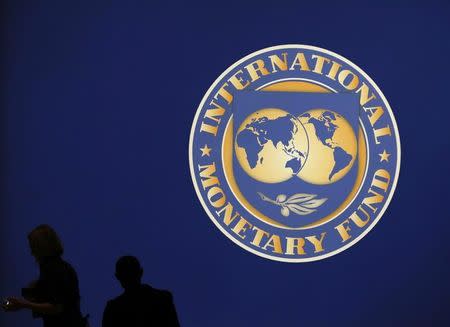IMF cuts Zimbabwe's growth forecast after drought, weak exports

By MacDonald Dzirutwe HARARE (Reuters) - The International Monetary Fund on Wednesday lowered Zimbabwe's growth forecast for this year to 1.5 percent from 2.8 percent, blaming drought and lower commodity exports. The southern African nation has been struggling for five years to recover from a catastrophic recession that was marked by billion percent hyperinflation and widespread food shortages. Some analysts say Zimbabwe could head into a downturn this year. Domenico Fanizza, who is leading an IMF mission that is reviewing Zimbabwe's progress under a Fund staff monitoring programme, said a drought this year had caused a significant slowdown in economic activity. He told reporters at a news conference that the lower growth forecast of 1.5 percent was still a "cautious assumption". "Moreover the international environment is becoming increasingly difficult, with low prices for Zimbabwean commodity exports, and those are the main reasons for the revision downwards for the projections for 2015," Fanizza said. The new forecast matches that of the government, which more than halved its initial 3.2 percent projection in July citing the drought and low commodity prices. More than half of Zimbabwe's exports come from the mining sector, while tobacco sales -- the southern African country's single largest export earner -- could this year be hurt by the slowdown in China, their major market. Fanizza said the IMF staff programme was meant to repair strained relations between Zimbabwe and international lenders and could eventually open the door for new funding. Zimbabwe defaulted on its loans to the IMF, World Bank, African Development Bank and several Western creditors in 1999 and has accumulated a debt of $9 billion. Fanizza said Zimbabwe had met all the targets set under the staff programme for the period up to June. Some of the targets include presenting a plan on how to cut the government wage bill, re-organise the financial sector, reduce external borrowing and come up with a plan to clear arrears. "So the staff monitoring programme was to show that Zimbabwe has the capacity to implement the kind of steps and reforms that would be required as part of a financial programme, which is a real programme that actually puts money on the table," he said. Zimbabwe will next month present plans to international lenders on the sidelines of the IMF and World Bank meeting in Peru on how it intends to clear $1.8 billion in arrears. Finance Minister Patrick Chinamasa declined to disclose the plans on Wednesday.

 Yahoo Finance
Yahoo Finance 